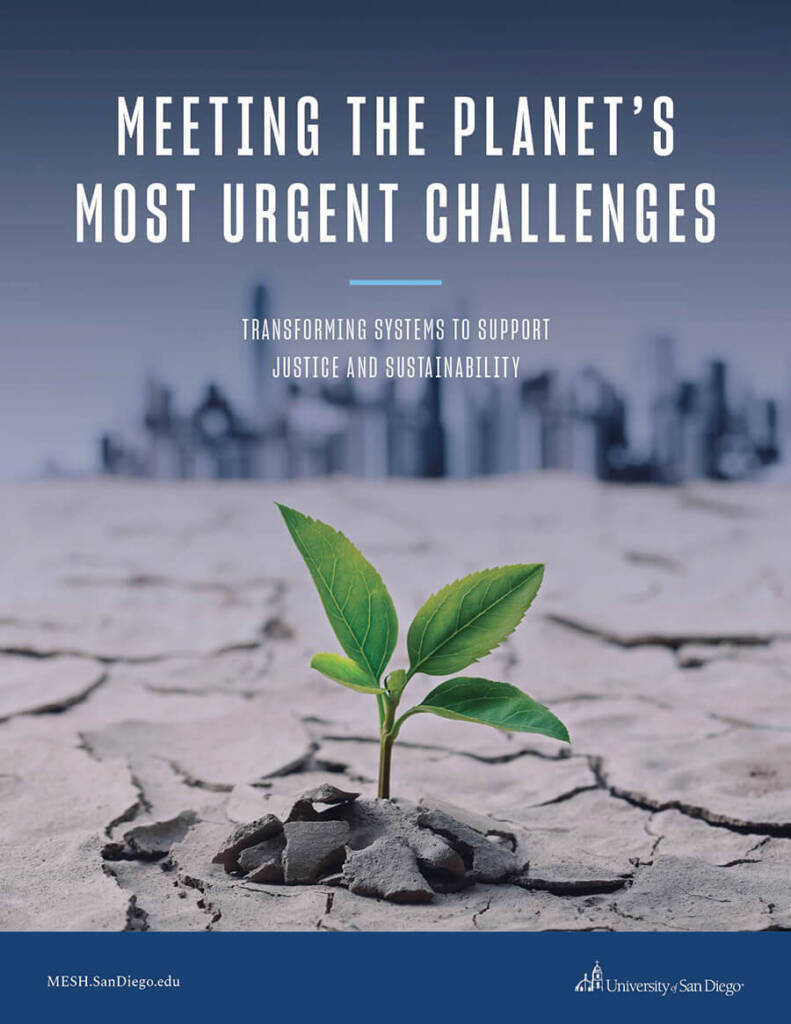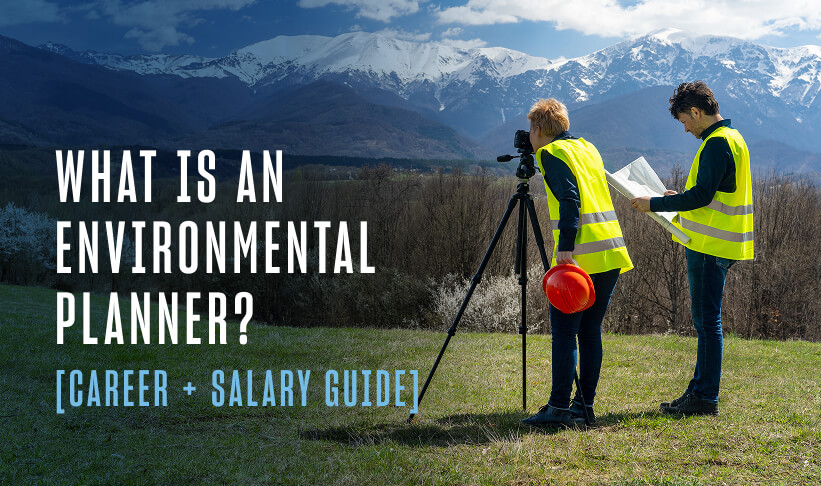Are you committed to protecting the environment and our most vulnerable communities? More than ever, we need committed and passionate professionals who can enforce established laws and regulations to protect our air and water, as well as support public health through waste, chemical and cleanup enforcement.
Environmental law plays a core role in addressing a multitude of environmental challenges at all levels and scales; amounting to the planetary crises of climate change, biodiversity loss and pollution.
— Prof. Dr. Christina Voigt, Chair, IUCN World Commission on Environmental Law
Laws cannot enforce themselves, and while some companies do try to navigate the complex web of environmental laws and regulations in good faith, others wilfully or unintentionally ignore, bend or even break them.
Unless the environmental rule of law is strengthened, even seemingly rigorous rules are destined to fail and the fundamental human right to a healthy environment will go unfulfilled.
— David Boyd, UN Special Rapporteur on Human Rights and the Environment
If you want to ensure that everyone plays by the same rules and respects our natural environment, then you can play a vital role in enforcing established laws and regulations as an environmental compliance officer.
Here’s what you need to know about this important career
What Is Environmental Compliance?
Environmental compliance refers to the process of adhering to the environmental laws, regulations and standards established by local, state and federal governments. It ensures that organizations minimize their environmental impact by reducing pollution, managing waste responsibly and using natural resources sustainably. These standards are meant to minimize harm to the natural world and to the people and ecosystems that depend on a healthy environment.
Organizations measure their environmental compliance through various mechanisms, including:
- Regulatory Permits — Businesses that operate in ways that affect the environment, such as discharging pollutants, managing hazardous waste or using natural resources, must often obtain regulatory permits that authorize them to do so. These permits come with specific conditions that must be met before they can be granted.
- Environmental Audits — Internal or third-party audits are conducted to assess whether operations comply with environmental regulations. These audits identify areas for improvement and help businesses correct issues before they become legal problems.
- Monitoring and Reporting — Companies must monitor and report relevant environmental monitoring data to regulatory bodies, such as the Environmental Protection Agency (EPA), to demonstrate continued compliance.
- Environmental Management Systems (EMS) — Businesses can also implement EMS frameworks — such as the ISO 14001 standard — which establish procedures for managing environmental performance, ensuring ongoing compliance and reducing environmental risks.
- Training and Education — Companies provide training for employees on regulatory requirements, best practices and how to handle hazardous materials or prevent pollution, ensuring that everyone knows and follows compliance best practices.
Organizations that fail to comply with established environmental laws and regulations can suffer severe consequences, including:
- Fines and Penalties — Regulatory agencies can impose significant fines for violations of environmental laws. These fines will vary depending on the type and severity of the violation but can reach millions of dollars.
- Legal Action — Companies may face lawsuits from government bodies or private parties, especially if non-compliance leads to public health risks or environmental damage. This could result in civil settlements or court-mandated compensation for damages and corrective actions.
- Permit Revocation — For severe or repeated violations, businesses may have their operating permits revoked, which can impair or even halt their ability to continue business activities.
- Increased Scrutiny — Businesses that violate environmental laws may face more stringent regulatory oversight in the future, including more frequent inspections, monitoring requirements and tighter restrictions.
- Reputational Damage — Environmental violations can also harm a company’s reputation, resulting in the loss of business, customer trust and investor confidence.
- Cleanup and Remediation Costs: Companies responsible for environmental contamination may be required to finance costly cleanup and remediation efforts under laws like the Comprehensive Environmental Response, Compensation, and Liability Act (CERCLA), also known as Superfund.
What Does an Environmental Compliance Officer Do?
It’s the responsibility of environmental compliance officers to investigate potential violations of environmental laws and regulations and monitor compliance. Environmental compliance officers gather and analyze data through audits and on-site inspections and write reports about their findings. Officers may also be expected to develop recommendations for action, such as setting improvement goals or outlining compliance programs for the business to implement.
Environmental compliance officers are sometimes referred to by other job titles or may have responsibilities that overlap with similar positions. These titles can include:
| — Environmental Compliance Specialists — Regulatory Analysts — Compliance Consultants | — Risk and Compliance Analysts — Compliance Coordinators — Regulatory Affairs Advisors |
Depending on who they work for and the industry they are auditing, compliance officers may specialize in investigating a range of environmental issues, from air pollution and water quality to waste reclamation and use of natural resources.
Specific environmental compliance officer duties can include:
- Determining whether an organization is in regulatory compliance
- Interpreting laws and offering legal advice to clients
- Suggesting process improvements and compliance planning
- Implementing compliance oversight programs
- Communicating and advocating for the importance of compliance
- Performing risk assessments
Environmental compliance officers bring more to organizations than just ensuring they meet legal requirements. Businesses and institutions can reap significant rewards by embracing environmentally conscious operations, including:
- Reducing waste and its associated costs
- Optimizing resources and finding greater efficiencies
- Accessing new markets and opportunities
- Improving consumer trust and stakeholder relations
- Building safer work environments and boosting employee morale
What Is the Average Salary for this Position?
As with most positions, the exact salary for an environmental compliance officer will vary based on job requirements, level of experience, geographic location and industry.
- Zippia lists a range between $42,000 and $82,000*
- Salary.com lists a range between $68,401 and $100,696*
- Glassdoor lists a range between $81,000 and $124,000*
* Salary values were retrieved in March 2025
Salaries and job openings vary across industries, but working as an environmental compliance officer is more than just building a professional career. It’s a commitment toward enforcing the laws and regulations that protect our health and our environment.
This field is also expected to enjoy strong job growth, as the U.S. Bureau of Labor Statistics predicts a faster-than-average 7% growth from 2023 to 2033 for environmental scientists and specialist positions.
What Skills Are Needed to Start a Career as an Environmental Compliance Officer?
Environmental compliance is a very technical field, and officers are expected to perform rigorous analyses using advanced statistical techniques and analytical models.
Important technical skills include:
- Expertise in laws and regulations — Including knowledge of relevant regulations, such as the Clean Air Act, Clean Water Act, Resource Conservation and Recovery Act (RCRA) and any applicable local regulations
- Data collection and analysis — Proficiency in using tools and technologies to measure air quality, water quality, emissions, waste and pollution levels
- Auditing and reporting — Auditing skills to help identify areas of non-compliance, and the ability to write reports that provide actionable recommendations
- Knowledge of Environmental Management Systems — Familiarity with EMS frameworks and how they guide organizational compliance and environmental performance
- Computer skills — Skilled in using relevant software for data analysis, such as Microsoft Excel, Geographic Information Systems (GIS) and environmental management software
Environmental compliance officers don’t work alone. They’re expected to collaborate with scientists, engineers, regulators and legislators. They also need to be able to clearly and directly communicate their findings with businesses and other stakeholders.
Important interpersonal and organizational skills include:
- Communication — Including writing reports and giving presentations to non-experts and working directly with regulatory agencies
- Collaboration — Collaborating with cross-functional teams to ensure that all stakeholders understand their compliance responsibilities
- Analytical and critical thinking — Understanding how to assess risks associated with non-compliance and propose strategies for minimizing environmental impact and legal exposure
- Organizational and planning skills — Capable of managing environmental projects, including timelines, budgets, and cross-functional teams
What Qualifications Are Needed?
The exact qualifications for a position will vary, especially across different industries. In general, a qualified environmental compliance officer will have earned:
- A degree from an accredited college or university program
Qualified job candidates will be expected to have at least an associate’s or bachelor’s degree in a relevant field, such as environmental policy, ecology, political science or environmental science. Some positions will also require that a degree be supplemented with work or field experience in a specific industry or region. A master’s degree may help candidates apply for more advanced positions, which may require specialized knowledge in areas such as environmental and energy policy or international environmental policy. Courses in environmental policy and regulation can be crucial for understanding matters of compliance.
Advanced degrees can also provide important skills and experience outside of the hard sciences. Transdisciplinary programs such as the Master of Science in Engineering, Sustainability and Health (MESH) can provide important context into other disciplines for aspiring officers, allowing them to build collaboration skills and develop insights necessary for creating effective and comprehensive solutions. - Specific industry certifications
Industry certification provides environmental compliance officers with a greater understanding of their fields. As a resource, they’re a valuable way to demonstrate your knowledge and expertise and an effective way to build specialized knowledge. The National Registry of Environmental Professionals (NREP) offers several certifications related to sustainability, including:
Who Hires Environmental Compliance Officers?
Environmental compliance officers can find employment across a wide variety of fields. They can analyze and communicate their findings to legislators and regulatory agencies, or private enterprises and environmental groups. As an environmental compliance officer, you can find work in:
- Local, state and federal government
- Large companies and enterprises
- Scientific and technical consulting services
- Both the private and nonprofit sectors
The need for environmental compliance officers extends across many different industries. Common fields of employment can include:
| — Manufacturing — Energy — Construction — Mining | — Healthcare — Agriculture — Transportation — Consultation |
A search of several job aggregator sites* including Indeed and Glassdoor found job listings at:
| — NextWave Partners — Ryder System — State of Maryland — Penske — Insight Global | — City of Oceanside, CA — FEMA — Haley & Aldrich — Amazon Web Services — Vail Resorts Corporate |
* Search was conducted in October 2024
How Do I Become an Environmental Compliance Officer?
Everyone’s path is a little different, but to become an environmental compliance officer, consider following these general steps:
- Research and decide on a specialization or industry — Environmental compliance officers work across various industries, each with its own regulations, challenges and environmental impacts. Start by researching the industries that interest you most and consider whether you’d like a broad environmental role or if you’d prefer to specialize in areas like hazardous waste, water quality or sustainability.
Once you’ve identified your preferred field, research the specific environmental regulations, job descriptions and skills required. Understanding industry-specific challenges will help you tailor your education and training to meet the needs of that field. - Earn a bachelor’s degree in a relevant field — You’ll want to pursue a bachelor’s degree specific to the work that you’ll be doing. Common choices include ecology, environmental policy, environmental studies, environmental science and political science.
You’ll want to complement your major with courses in math, statistics and computer science to build your research and analytical skills. - Get experience through internships and develop work experience — Seek out internships, volunteer work and entry-level jobs in organizations that are known for their environmental programs or have a dedicated compliance department. Government agencies, environmental consulting firms, NGOs and private companies are good places to look for these opportunities.
Focus on building core skills like environmental auditing, regulatory reporting, data analysis and risk assessment. - Pursue appropriate credentialing through certification and training — Certifications and specialized training can help you demonstrate your expertise in environmental compliance. Many industries also require specific certifications to qualify for higher-level positions. Training and certification keep your skills updated so you can keep pace with evolving regulatory requirements.
- Find ways to collaborate with mentors and peers — The more you collaborate with other like-minded professionals, the more you understand the different possibilities that are open to you. Joining a transdisciplinary degree program such as MESH can bolster your experience and help you develop a more nuanced perspective on environmental matters, from environmental engineering and policy creation to effective communication and promoting issues of environmental justice.
Visit our program page to learn more about how you can enrich your career by working with other passionate change-makers in a transdisciplinary environment.




